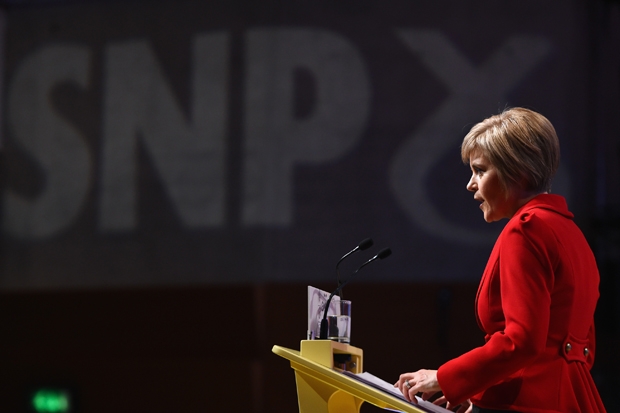It’s just over two years since the UK voted to leave the European Union in what proved to be a shock result that caught both politicians and commentators off guard. Unlike Lord Ashdown’s hat-eating, or Matthew Goodwin’s book eating after the two most recent General Elections, many didn’t get held accountable to their off the mark Brexit predictions.
Happily, Mr S is on hand to correct that. Steerpike has compiled a list of some of the Brexit predictions that failed to come true:
1. JP Morgan: Scotland will leave the UK and get a new currency
Days after the EU referendum, investment company JP Morgan announced in an email to clients that they expected Scotland to leave the union and change currency. (As did Andrew Marr in the immediate aftermath of the vote.) Eagle-eyed readers may have noticed that Scotland is neither independent and nor using a currency other than the pound. In fact, since the EU referendum, 40 polls have shown support for the union, whilst only four have come out in favour of independence. Sturgeon’s IndyRef2 gamble backfired – and she lost several seats in last year’s general election as Scots expressed recoiled from her plan. In JP Morgan’s defence, they said it would have to happen before 2019 – though it’ll have to be a hectic few months…
2. Arron Banks: New UKIP to become official opposition
Ukip mega-donor and self described ‘bad boy of Brexit’ Arron Banks is far from a shy man, as shown by his comments to the Guardian a week after the referendum:
‘I think we have a good shot at taking over from Labour as the opposition because Labour are imploding and Labour voters for the first time ever have defied their party, voting for leave,’
Perhaps Banks was trying to speak something into existence when he predicted a new, pro-Brexit party would overtake Labour as the opposition party of the UK, amongst other claims. Ukip went on to collapse and has not managed to poll above 5pc this year…
Where Banks was right however, was when he diagnosed UKIP ‘had problems with personnel’ – oddly self-aware too.
3. Goldman Sachs: Recession by 2017
As the old saying goes, economists predict fifteen of the next two recessions. Mr S feels it has never been more adequately applied than to Goldman Sachs’ note, which declared the British economy would go into recession by early 2017. (Goldman had donated £500,000 to the Remain campaign.) Credit Suisse predicted a 1pc fall in GDP and Nomura a 1.3pc fall. Chris Giles, the normally brilliant economics editor of the FT, also predicted recession and started a weekly series of economic indicators in his newspaper which he thought would point to this recession. Instead, economic growth actually accelerated: growth was 1.4pc.
4. HM Treasury: Half a million job losses
Whilst there were many incorrect takes after the referendum, none quite match the Government’s Project Fear centrepiece: HM Treasury analysis:the long-term economic impact of EU membership and the alternatives.
In the milder of its two disaster scenarios, HM Treasury predicted the UK would slide into recession, “unemployment would increase by around 500,000 with all regions experiencing a rise in rise in the number of people out of work”. It felt able to be very specific: 24,000 job losses in Wales, 43,000 in Scotland, etc. Instead, more than half a million jobs have been created – across every UK region and unemployment has been forced to a 43-year low. Still, at least the Government didn’t bluff an emergency budget! Mr S is in no doubt the Treasury has taken its error on the chin, and has now learnt the lesson of its anti-Brexit bias
5. Robert Ward: UKIP revival, Labour split and end of two party politics
Not as grand a claim as many other of the claims in this piece, The Economist’s Robert Ward’s post-Brexit take was impressive, merely by how many individual aspects were completely wrong. Ward claimed UK politics post-Brexit would have more smaller parties (wrong), that Labour would inevitably split (wrong), and that UKIP would take advantage of Labour’s weakness (very, very wrong). Fair play to Robert though – you don’t score any of the shots you don’t take.
6. Andrew Cooper: Remain to win by 10 points
Although some on this list had to wait years for a reality check on their duff predictions, David Cameron’s former polling guru Andrew ‘Calamity’ Cooper only had to wait an afternoon. On the referendum day, he published a poll for Populus that showed Remain with a ten-point lead – which, given that Calamity was also chief pollster to the In campaign, was quite a statement. And a signal of how far down the garden path he has led his fellow Remainers. When the inevitable embarrassment came, at least Calamity had his personal record to fall back on – predicting Cameron had a 0.5pc chance of a Tory majority in 2015. At the time of writing, Cooper is seeking new clients to advise.







Comments